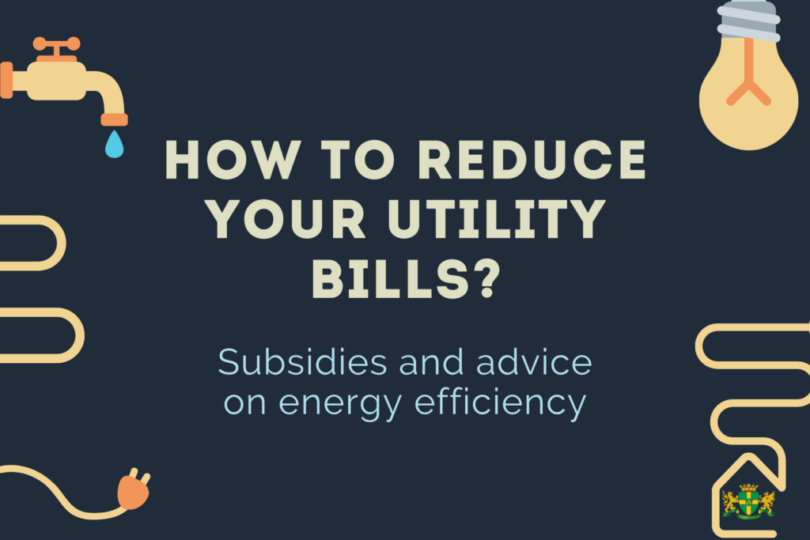Finding ways to cut monthly expenses has become essential for many households. One area ripe for saving money is utility bills—electricity, gas, water, and more. By implementing a few strategic changes, you can significantly lower these costs, reduce energy usage, and contribute to a greener planet. This article highlights 20 practical ways to reduce utility bills, covering everything from minor adjustments to more substantial upgrades that can save you money month after month.
Simple Adjustments to Save on Utility Bills
Turn Off Lights When Not in Use
One of the easiest ways to reduce utility bills is simply by turning off lights in unoccupied rooms. Although it might seem minor, it can lead to substantial savings over time, especially if you switch to energy-efficient LED bulbs.
Unplug Unused Appliances
Even when turned off, devices that are plugged in draw “phantom” energy. By unplugging unused appliances, such as the toaster or coffee maker, you can cut down on your electricity bill by up to 10%.
Adjust the Thermostat Wisely
Keeping your thermostat a few degrees lower in winter and higher in summer can make a huge difference. Smart thermostats, which adjust temperatures automatically based on your habits, can lead to even greater savings, with some models claiming up to 20% reductions in heating and cooling costs.
Take Shorter Showers
Heating water accounts for a large portion of energy consumption in homes. By shortening your shower time, you can significantly reduce your water and energy usage, saving money in the process. Consider also installing a low-flow showerhead to further conserve water.
Wash Clothes in Cold Water
Heating water for laundry can be costly, and cold water is often just as effective, especially with modern detergents. Switching to cold washes will not only reduce utility bills but also preserve your clothes’ quality for longer.
Seal Windows and Doors
Drafty windows and doors can lead to significant heat loss in winter and cool air loss in summer. Applying weatherstripping or caulking can keep your home’s temperature stable, requiring less energy to heat or cool and lowering your utility costs.
Energy-Efficient Home Improvements
Install Energy-Efficient Windows
Upgrading to energy-efficient windows can prevent heat from escaping in the winter and entering in the summer, reducing your need for heating and cooling. While the initial investment can be high, the long-term savings are well worth it.
Use Ceiling Fans Year-Round
Ceiling fans help circulate air, making your home feel warmer in winter and cooler in summer. Just remember to switch the direction of the blades depending on the season: clockwise in winter and counterclockwise in summer.
Switch to LED Lighting
LED bulbs use far less energy than traditional incandescent bulbs and last much longer, reducing both your energy bill and the need for frequent replacements. By switching all your lights to LEDs, you can cut your lighting costs by up to 75%.
Invest in Energy Star Appliances
Energy Star-rated appliances are designed to consume less energy without sacrificing performance. While they may cost more upfront, they can reduce your energy consumption by as much as 30%, making them a sound investment in the long run.
Insulate Your Attic and Walls
Proper insulation is one of the most effective ways to save on heating and cooling. Insulating your attic and walls can prevent energy loss, ensuring that your HVAC system works more efficiently and lowering your utility bills.
Smart Habits to Lower Utility Costs
Use Power Strips
Plugging multiple devices into a power strip and switching it off when not in use prevents “phantom” energy draw. This is particularly effective for home entertainment setups, where multiple devices are often left plugged in and drawing power.
Run Dishwasher and Laundry Only with Full Loads
Dishwashers and washing machines consume the same amount of energy regardless of how full they are. By waiting until you have a full load, you can reduce water and energy use, resulting in noticeable savings on your utility bill.
Air Dry Clothes and Dishes
Air drying is a simple and effective way to save energy. Skip the dryer and let your clothes dry on a line or drying rack. Similarly, open your dishwasher’s door at the end of its cycle to let your dishes air dry instead of using heated drying.
Cook Efficiently
Using smaller kitchen appliances like a microwave, toaster oven, or slow cooker instead of the full oven can save energy, especially for small meals. You can also save energy by covering pots when cooking, as it helps food cook faster and keeps heat in.
Use Programmable or Smart Thermostats
Smart thermostats learn your habits and adjust temperatures automatically, helping you avoid excessive heating or cooling when you’re away or asleep. With remote control capabilities, you can monitor and adjust settings from anywhere, enhancing savings.
Seasonal Tips to Save Money Year-Round
Reverse Ceiling Fans in Winter
Ceiling fans aren’t just for summer; using them in winter can also save on heating costs. By setting the fan to rotate clockwise, you can push warm air down from the ceiling, helping your heating system work more efficiently.
Close Curtains and Blinds
In winter, open curtains on sunny days to let in natural heat and close them at night to keep warmth inside. In summer, keep curtains closed during the hottest part of the day to reduce cooling costs. Blackout curtains can be particularly effective for this purpose.
Use a Water Heater Blanket
Older water heaters often lack adequate insulation. A water heater blanket can help retain heat, reducing the energy needed to keep water warm and lowering your monthly utility bill.
Maintain Your HVAC System
Regular maintenance ensures your HVAC system runs efficiently. Clean filters, annual inspections, and servicing can all help the system work at its best, avoiding unnecessary energy consumption and costly repairs down the line.
Upgrade to a Tankless Water Heater
Tankless water heaters heat water on demand, which is more energy-efficient than keeping a tank of water hot at all times. Although the initial cost is higher, the savings in energy usage can be substantial, making this an excellent choice for long-term savings.
Conclusion
Reducing utility bills doesn’t have to be complicated or require drastic lifestyle changes. From minor adjustments to strategic investments, there are numerous ways to make your home more energy-efficient, eco-friendly, and budget-conscious. Implementing even a few of these suggestions can lead to noticeable savings, giving you extra room in your budget for other needs or pursuits. Take these steps today to enjoy a comfortable, cost-effective home tomorrow.
FAQs
What is the most effective way to reduce utility bills?
The most effective methods are often improving insulation, using energy-efficient appliances, and adjusting the thermostat. Small changes like unplugging devices and using cold water for laundry also add up over time.
How much can I save by using LED lights?
Switching to LED lighting can reduce lighting costs by up to 75% compared to traditional incandescent bulbs. LEDs also last longer, saving you money on replacements.
Do smart thermostats really make a difference?
Yes, smart thermostats can reduce heating and cooling costs by learning your habits and adjusting temperatures accordingly, potentially saving you up to 20% on these expenses.
Is it worth investing in Energy Star appliances?
Energy Star appliances use up to 30% less energy, making them an excellent investment over time. They not only lower energy bills but also reduce environmental impact.
Does sealing windows and doors really help save money?
Sealing windows and doors prevents drafts, maintaining a consistent indoor temperature and reducing the need for extra heating or cooling, which can lead to substantial savings.
How often should I maintain my HVAC system?
It’s recommended to have your HVAC system serviced annually. Clean filters and regular maintenance ensure efficiency, helping reduce energy consumption and extending the system’s life.








Leave a Comment